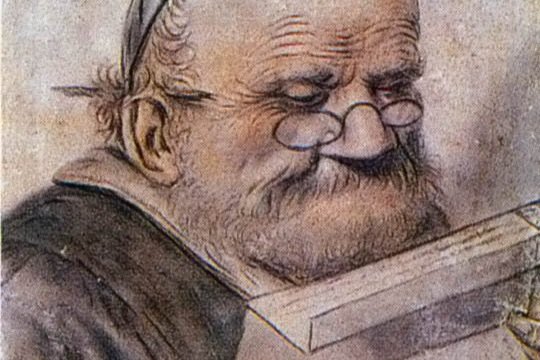Bawdy Premodern and Postmodern


The period of history we call the Reformation is full of its puzzles and contradictions. One of the most intriguing of those puzzles is this: that one of the leading European literary figures of the time, a man whose work inspired Cervantes and Voltaire, is almost entirely unknown today. This man was a devoted Catholic—a monk, in fact—whose writings repeatedly provoked the ire of Catholic leaders at the Sorbonne and the Vatican alike; these very same works, however, also came under attack from Protestants as prominent as John Calvin. During much of his lifetime, European literati disdained Rabelais’ writing, but after his death, his work sparked a revolution in European literature. For a hundred years, everyone was mimicking his incandescent, absurd style. But then, as quickly as it appeared, his work disappeared from popular discourse.
That man is Francois Rabelais, and his most notable work is the sprawling, gross, bewildering, hilarious monstrosity published now as Gargantua and Pantagruel, which practically no one has read. And that is all right—it is an unbelievably ridiculous work, a colossal waste of time. The only thing more shocking than the fact that some people—in fact, much of educated Europe in the 16th century—took the time to read it is that someone took the time to write it in the first place.
Unlike the marvelous main character of Robertson Davies’ Rabelais novel The Rebel Angels, I am not a Rabelais scholar. Nor am I, unlike the unflappable Mikhail Bakhtin (whose Rabelais and His World is far more than a book of criticism), conversant in medieval and Renaissance literature of many languages.
I am, however, something perhaps rarer: a casual, ongoing, amateur reader of Rabelais. I met Rabelais through Davies, and came to love him through Bakhtin, and the fact that these two (very different) 20th-century giants—one a Canadian novelist, one a Soviet-era Russian critic—were moved to devote their genius to Rabelais says something about the strange power of his work.
I have been reading Gargantua and Pantagruel for over a decade and have not yet finished. I understand probably around a quarter of it, and am continually looking up bits of Latin and archaic French to try to understand the wordplay. It’s baffling, yes, but also mesmerizing. I continually find myself returning to the bits I’ve read, like the fantastic war that breaks out over who has the right to drink the wine at a particular French vineyard; or the episode in which the giant Pantagruel sticks out his tongue and covers up an entire army, prompting an account of the inside of the giant’s mouth; or the pages-long description of the child Gargantua’s search for the perfect toilet paper (the downy neck of a live goose, it turns out, is top notch), or even just the first few pages, which describe the intimate details of Gargantua’s father, Grandgousier’s, relations—gustatory, libatious, festive, and of course, marital—with his blushing bosomy bride.
To try to understand the whole of Rabelais or his writing is the work of a lifetime—I am not sure if Rabelais himself would think such a lifetime well spent—but even a passing acquaintance with this odd fellow is certainly worthwhile. There is a mystery here, of the finest vintage; every time I pick up the blue brick called Gargantua and Pantagruel, I find myself asking, in the midst of chuckles, how can something so stupid have turned literature upside down? Why does this book matter at all?
It really is stupid, too. It’s a thousand pages of poop jokes, fart jokes, drunk jokes, blood-and-bruises jokes, sex jokes, burp jokes, spliced together with politics-and-religion jokes and lots of Latin puns that seem erudite today but would have been more accessible to Rabelais’ 16th-century audience. I cannot think of a single sentence in it that could be read aloud at the dinner table. It’s difficult even to find a quotation because the sentences are so long and elaborate.
Read the rest


